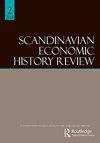IF 1
Q4 ECONOMICS
引用次数: 0
摘要
这是一本关于挪威贸易政策中利益冲突的非常有趣的书,基本上是从1970年到2015年。这本书绝对值得经济和政治史学家阅读。它于2015年首次出版,并于2020年上线。编辑们在前言中明确指出,挪威历史上一直是一个贸易经济,国际贸易是经济、区域和文化发展的重要因素,是一种生活方式。他们还强调,在贸易方面的开放是其国家身份的一部分。尽管在国际贸易问题上公开宣布了高度的政治共识,但编辑们认为,这种政治包含了相当大的分歧和利益冲突。事实上,这就是本书的红线。这本书进行了一次成功的跨学科练习,强调了经济学、历史学和政治学。它从历史的角度讨论了贸易政策的政治条件和经济后果。世贸组织是中心,因为它强调多边和双边贸易协定之间的差异。它既是对过去的学术分析,也是对未来贸易政策辩论的输入。编辑们的出发点是,贸易政策中的经典利益冲突往往存在于进攻性利益和防御性利益之间。前者具有较强的竞争力,因此倾向于开放边界的自由贸易政策,而竞争力较弱的防御性产业害怕竞争,因此要求保护国内市场。自20世纪70年代以来,挪威工业和工业政策的发展使鱼类和鱼类养殖成为“进攻性”角色之一,而农业和纺织工业则代表“防御性”角色。其他攻击性行业包括石油和天然气以及海事和海洋服务,这些行业受贸易政策的影响较小。在这里,人们可以更详细地阐述渔业从防御性工业向进攻性工业的发展。本文章由计算机程序翻译,如有差异,请以英文原文为准。
Interessekonflikter i norsk handelspolitikk
This is a very interesting book on conflicting interests in Norwegian trade policy, basically from 1970 until 2015. It is definitely worth reading for economic and political historians. It was first published in 2015 and came online in 2020. The editors clearly state in their introduction that Norway historically has been a trading economy, with international trade as an important factor for the economic, regional and cultural development, as a way of living. They also stress that openness when it comes to trade is part of its national identity. Despite public announcements of a high degree of political agreement in international trade questions, the editors argue that this politics contains considerable disagreements and conflicts of interests. This, in fact, represents the red thread of the book. The book holds a successful inter-disciplinary exercise with emphasis on economics, history and political science. It discusses political conditions for trade policy and economic consequences, all in a historical perspective. WTO is central as it stresses differences between multilateral and bilateral trade agreements. It is meant as both an academic analysis of the past and an input for future debate on trade policy. The editors’ departure is that classical conflicts of interests within trade policy often exist between offensive and defensive interests. The first ones have strong competitive power, and thus, prefer a liberal trade policy with open borders, when defensive industries with weak competitive power fear competition, and thus, demand protection of domestic markets. Since the 1970s, the Norwegian both the industrial and industrial policy developments have made fish and fish farming one of the ‘offensive’ actors, when agriculture and textile industries represent ‘defensive’ actor. Other offensive industries are oil and gas and maritime and marine services, which, however, are less impacted by trade policy. Here one could have elaborated more on the development of fisheries from being a defensive to an offensive industry.
求助全文
通过发布文献求助,成功后即可免费获取论文全文。
去求助
来源期刊

SCANDINAVIAN ECONOMIC HISTORY REVIEW
ECONOMICS-
CiteScore
1.60
自引率
16.70%
发文量
20
期刊介绍:
Scandinavian Economic History Review publishes articles and reviews in the broad field of Nordic economic, business and social history. The journal also publishes contributions from closely related fields, such as history of technology, maritime history and history of economic thought. Articles dealing with theoretical and methodological issues are also included. The editors aim to reflect contemporary research, thinking and debate in these fields, both within Scandinavia and more widely. The journal comprises a broad variety of aspects and approaches to economic and social history, ranging from macro economic history to business history, from quantitative to qualitative studies.
 求助内容:
求助内容: 应助结果提醒方式:
应助结果提醒方式:


